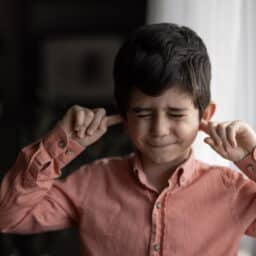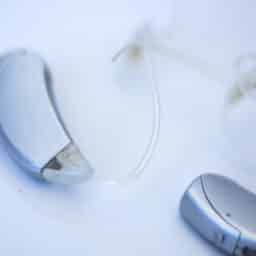Tips To Protect Your Ears From Damage
Approximately 15% of the U.S. population has hearing loss. While many causes of hearing loss aren’t preventable, like aging or genetics, there are ways you can protect yourself against others, like loud noise exposure. Let’s examine a few ways you can safeguard your hearing from loud noise. 1. Invest in Earplugs Earplugs dampen the force…
Five Everyday Sounds and Their Impact on Your Hearing

Approximately 15% of U.S. adults have hearing loss. You can’t always stop hearing loss from progressing, as with age-related cases, but there are a few ways to protect against other causes, like noise exposure. While loud concerts and construction zones are the usual suspects regarding hearing damage, you might be surprised how many ordinary sounds…
How Our Ears Process Loud Noises

When you’re listening to an audiobook while cleaning your house or hearing people cheering at Busch Stadium, you probably don’t think much about how your ears are processing the noise. That’s completely normal—but understanding how your ears work and why it’s important to protect them from loud noises is key to preventing hearing loss. The…
Center for Hearing & Speech is now offering Parkinson Voice Project’s SPEAK OUT!® Therapy Program
St. Louis, MO — Center for Hearing & Speech is pleased to announce the SPEAK OUT! Therapy Program is now available through their speech-language pathology department. The SPEAK OUT!® Therapy Program, developed by Parkinson Voice Project®, helps people with Parkinson’s and related neurological disorders regain and retain their speech and swallowing. This highly effective, evidence-based…
Essential Tips for Keeping Your Hearing Aids in Top Shape

Hearing aids are game changers, helping people stay connected to conversations, music and the sounds of everyday life. To keep your devices working at their best, regular care and maintenance are essential. By taking a few simple steps each day and scheduling professional check-ups, you can extend the life of your hearing aids and ensure…
How to Improve Video Calls When You Wear Hearing Aids

Today’s digital era has changed how many people work, with many employees participating in virtual or hybrid schedules and taking video calls from their home offices. If you use hearing aids, here are some tips to optimize this process. Stream Calls to Your Hearing Aids Stream the audio from video meetings directly to your hearing…
How to Make the Most of a Hotel Stay with Hearing Loss

Are you making travel plans this spring? If so, you may be planning to book a hotel room. If you’re one of the 7.1% of adults ages 45 and older who uses a hearing aid, according to the Centers for Disease Control and Prevention, you may want to take extra measures to make the most…
How to Help Your Grandchildren Understand Your Hearing Aids

The Centers for Disease Control and Prevention (2021) reports that “Among adults aged 45 and over, hearing difficulties increased with age among men and women.” If you’re among this age group and wear hearing aids, you may be wondering how to help your grandchildren understand why you’re wearing them. We review how to do this…
Why Can I Hear People Talking but Still Can’t Understand Them?

If you struggle to understand what people say, you’re not alone. Many people experience this frustration—you can hear someone speaking clearly enough, but the actual words sound blurred together, making it difficult to grasp what they’re saying. For example, when you’re buying your favorite fall latte from More Than Coffee, you might mishear your total…
Empowering Moments that Matter

Jessica Rodriguez knew she was missing something important. The mother of two has been profoundly deaf her entire life. As a 7-year old, almost the same age her son, Jerico, is now, Jessica received a cochlear implant. She used that throughout her childhood, and she attended St. Joseph Institute for the Deaf (SJID), which assists…